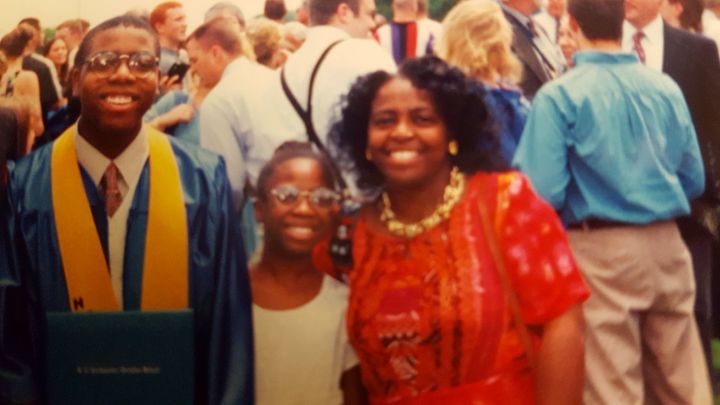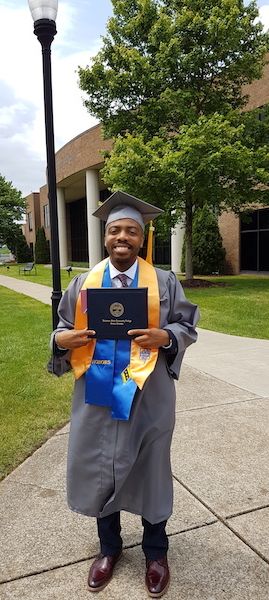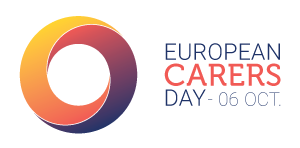This Saturday my older brother will graduate magna cum laude from Volunteer State Community College with his Associate’s degree in Computer Information Technology. While every degree is special, this one is particularly significant. Earning this degree was a hard-fought battle, requiring perseverance, inner strength, and tenacity.

18 years ago, my brother made a decision that put his entire life on hold. When our mother was diagnosed with degenerative disc disease, she underwent a spinal surgery intended to alleviate her pain. Instead, the surgery was performed incorrectly, leaving her permanently disabled and unable to work. Two weeks prior, my brother turned 19 years old, and he was entering his sophomore year at college. He had immersed himself in a full university experience: he was an honors student in mechanical engineering, he was active in rock climbing and racquetball, and he had many friends.
All of that changed when our mother’s surgery went wrong. He dropped out of college to come home to provide care for our mother and me, his little sister 7 years younger. He became responsible for her physical care, cooking, cleaning, and he also got a job to pay all of our household bills. In addition, he began taking me to school. I also took part in providing care for our mother, yet my brother bore the remarkable brunt of our mother’s care needs without any outside support or assistance.
While my life as a caregiving youth certainly wasn’t easy, I will always recognize the role my brother played in shielding me from the more devastating effects of caregiving at an early age. Because of him, my life took a very different path. When I look at his experience as a young adult caregiver, I know what my life could have been. Yes, the stress of having a mother in chronic pain sometimes negatively impacted my time in school. But I will never know what it’s like to have your educational dreams snatched away because of caregiving. Yes, I know what it’s like to be bullied and to not feel comfortable telling other people about your life as a caregiver. But I will never know what it’s like to be completely socially isolated and experience the loss of every single friend you’ve ever known because your life suddenly became vastly different than your peers.
Sure, I know what it’s like to push yourself through school with the goal of becoming financially successful, always mindful that one day your mother’s care will fall on your shoulders. But, I will never know what it’s like to be forced to unexpectedly work a full-time job to carry the weight of a mortgage and an entire family’s household bills at the bright young age of 19. Because of my brother, there are certain sacrifices that I have never experienced.
When I tell people our family story and they ask about our mother, I say that she no longer required intense physical care around 8 years ago, mainly because she stopped having surgeries and her care progressed to the management of her chronic pain.
“Oh!”, people often respond, somewhat dismissively, “So everything is fine.” Others even say, “Your brother isn’t a caregiver anymore.”
“Well,”, I say, always getting a bit flustered, never knowing how quite to explain our family’s situation. For people who have never experienced family caregiving, they don’t quite understand. They don’t know that in some ways, caregiving never really ends, even if direct physical care is needed irregularly. The severe financial impact never ends. The worry over our mother’s health never ends. The constant gaze towards the uptake of future caregiving responsibilities as our mother ages never ends. And for my brother, on the eve of his graduation from college, the impact of caregiving on his career never ends.
Caregiving is the reason why at age 36, despite being “on the right track” at age 19, he has finally earned his first postsecondary degree. Caregiving is the reason why at age 36, he is not yet finished in school; another 2 years of hard work is needed for him to earn a Bachelor’s degree. Caregiving is also the reason why even after those years of going back to school, he still isn’t sure how to answer the big question of “what do you want to be when you grow up?” because he lost those carefree years of exploration during young adulthood.
I always consider my experience in terms of what I didn’t have to give up because of caregiving, or conversely, what I still was able to experience despite caregiving. That’s all because of my brother. He is the reason why my life was not utterly broken as a caregiving youth, why I was able to pursue my dreams, and why I have hope for my future. He is the reason why my career has been devoted to helping other child and young adult caregivers finally gain much-needed recognition and support in the United States.
I firmly believe that because of his conscious actions of selflessness and compassion, millions of other caregiving youths will one day also feel hopeful that having an ill or disabled family member no longer means that they must give up their educational and career goals. People often call my brother a “hero” for our family. Indeed he is. But, as someone who has intimately watched my brother care for us day in and day out for years, I know that he is more than our family’s hero. He has cultivated a legacy that will impact the lives of millions of other young caregivers, and his graduation, is only the beginning of his accomplishments.

